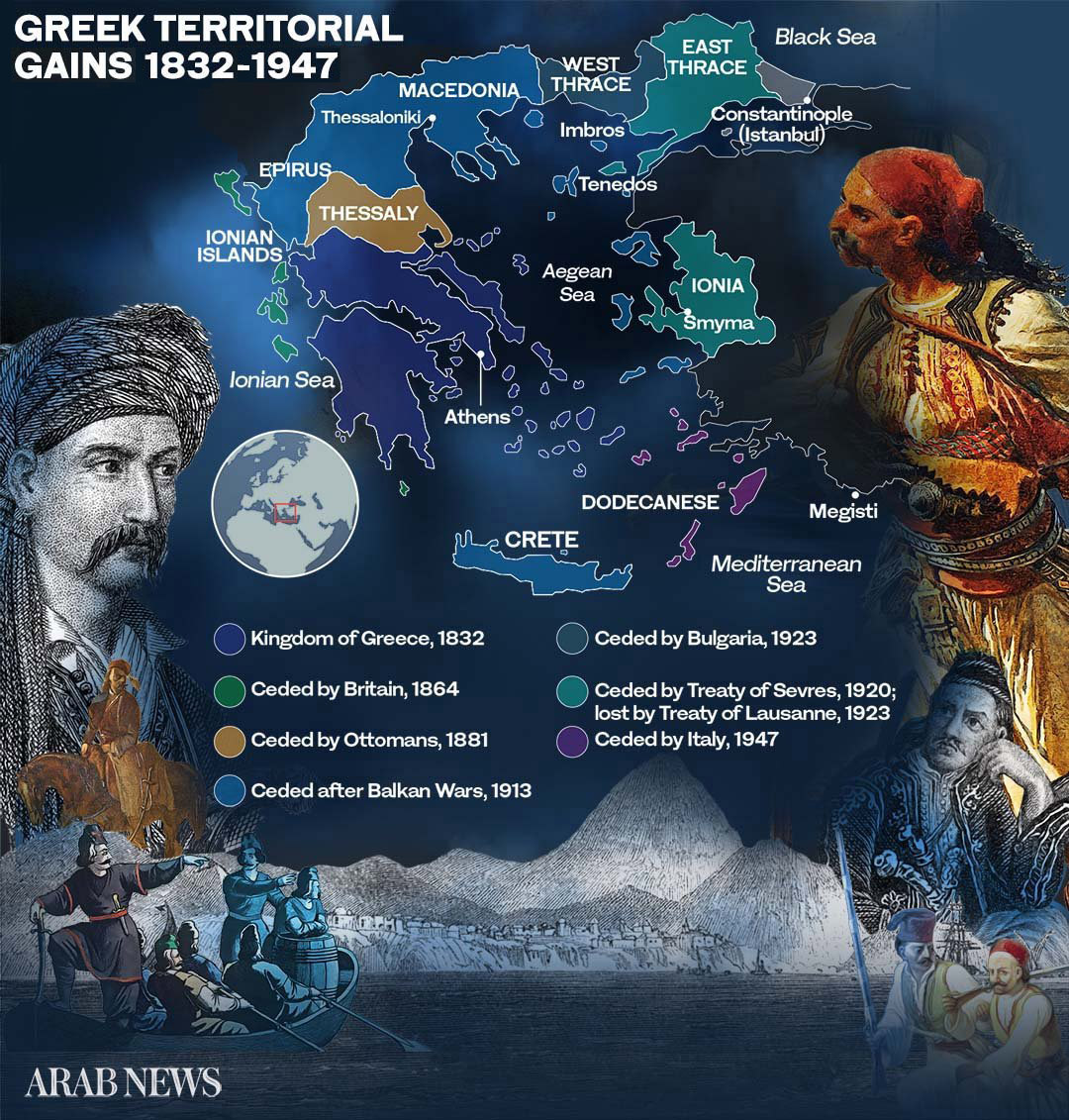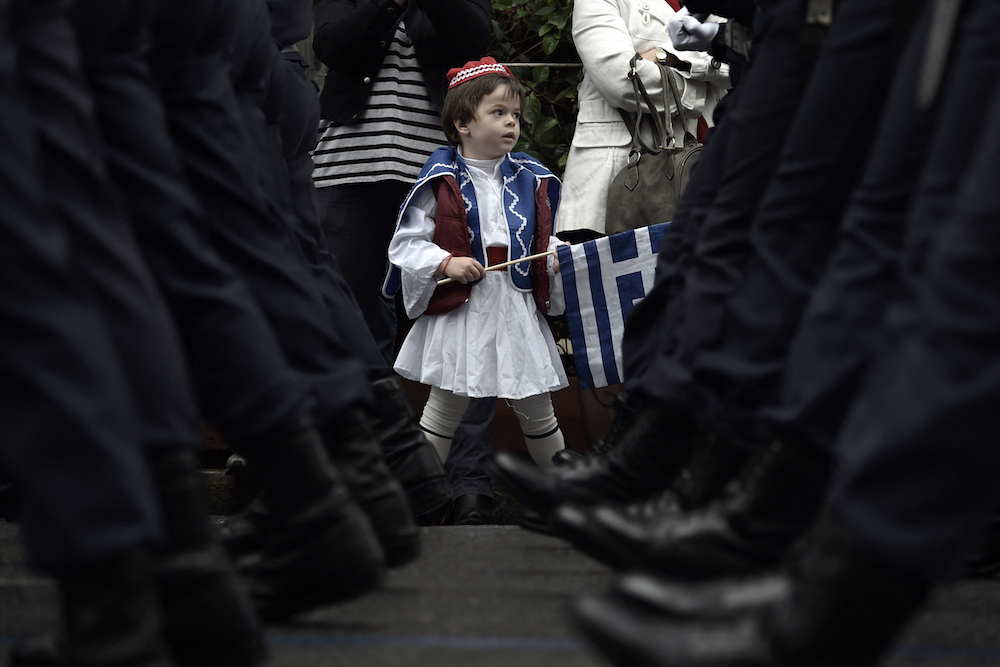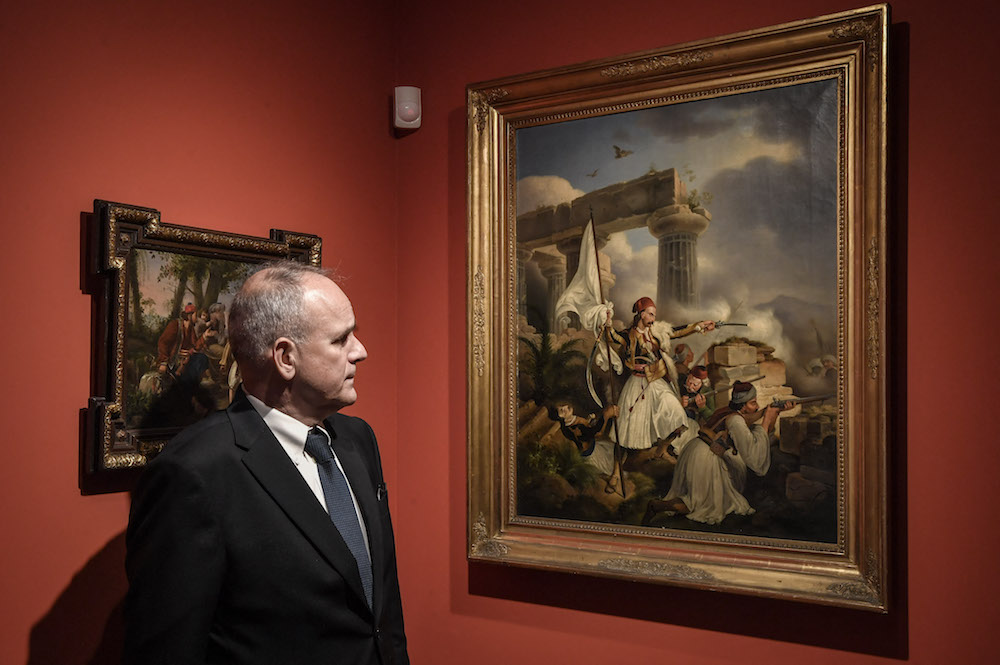ATHENS: One of the consequences of the fall of Constantinople in 1453 was the biggest brain drain in early European history. Greek intellectuals left the Byzantine Empire in droves, with many settling permanently in Italy, bringing with them their vast knowledge and precious collections of manuscripts.
Their presence contributed significantly to the rediscovery of classical Greek literature and philosophy, which they reinforced through teaching, translations and publications. The European Renaissance owes a great debt to them.
In the process, Venice became the center of the Greek intelligentsia and mercantile class, which organized themselves into a strong community.
By contrast, the former lands of the Eastern Empire entered a darker age, which could have obliterated Greek culture altogether were it not for the Orthodox Church, preserving the Greek language through its liturgical texts and ceremonies and local autonomy institutions, safeguard the feeling of belonging to a community.
One man who helped rescue the Greeks from intellectual oblivion was Kyrillos Loukaris, a patriarch of Constantinople in the early 17th century. Under the influence of Reformation ideas, Loukaris sought to educate Greek clerics to defend against the aggressive proselytism of the Catholic Church. He also established a printing press and an academy in Constantinople.
From the late 17th century onward, numerous schools opened across the southern Balkans, almost all of them teaching courses in the Greek language. Many of the most influential schools were established in major centers of Hellenism: Smyrna, Ayvalik and Chios.
Chios hosted a library containing some 12,000 volumes. Ayvalik, a rich city with an exclusively Greek population numbering 30,000, had a modern school with more than 300 students, managed by a liberal clergyman named Benjamin of Lesbos.

This movement to establish schools was driven by an educated monk named Kosmas of Aetolia. He traveled throughout the southern Balkans, from eastern Thrace and the Aegean Sea to the Ionian Islands and from Macedonia to central Greece, emphasizing the need for education and a strong grasp of the Greek language.
His influence was tremendous and his followers numbered in the thousands, including Greeks, Albanians and even Turks. Before his arrest and beheading by the Ottomans, he and his followers had established more than 200 schools.
But it was not just the rapid spread of schools that helped preserve Greek culture. The curriculum became richer, emphasizing logic, mathematics, the natural sciences, philosophy and the classics.
Many Greeks learned French, Italian and other European languages. Greek nobles (Phanariots) and merchant families sent their sons to Europe to continue their studies while their daughters were home-schooled.
Although many poor young men were also able to reach Western Europe to study on scholarships, the hero of the Greek Revolution, Theodoros Kolokotronis, saw this outward flow of the brightest and best as yet another brain drain.
“The third class, the merchants, these diligent Greeks, the better part of our nation but also the educated Greeks, left their country and they abandoned the poor people to a deplorable situation,” he once said.

A boy dressed as a Greek Presidental Guard watches a military parade on March 25, 2016 in central Athens during the anniversary of the Greek Independence Day. (AFP/File Photo)
Most of the new schools were supported by the Orthodox Church and local communities, which offered them a source of funding and a kind of legal protection against the abuses of Ottoman authorities. But over time, Greek merchants, guilds of artisans and emigres became major sponsors.
Greek schools were also established outside the Ottoman Empire, not only in Venice but in major European cities such as Vienna and Moscow. New books were published on secular subjects, many of them translations, contributing to a vibrant cultural exchange.
According to historian George Finlay, Greek domination of economic life, religion and education gave them an unbeatable advantage over every other Orthodox nationality.
“Literary education, and those who dispensed it, enjoyed a moral influence in society second only to the clergy. Greek priests and Greek teachers have transfused their language and their ideas into the greater part of the educated classes among the Christian population of European Turkey,” he wrote.
“They have thus constituted themselves the representatives of Eastern Christianity, and placed themselves in prominent opposition to their conquerors. All news was generally transmitted through a Greek medium, colored with Greek hopes and prejudices, or perverted by Greek interests.”
It was time for the bourgeoisie to succeed the Church in its intellectual leadership. Rich Greek merchants, especially those among the diaspora, began funding not only the churches and schools, but also translations and newspapers.

Museum founder Constantinos Velentzas describes a painting by German painter Georg Christian Perlberg in the new museum dedicated to the Philhellene foreign volunteers who fought and died for Greece on March 12, 2021. (AFP/File Photo)
The Greek intelligentsia moved from Venice to Vienna as the latter became a thriving center of Greek commerce, alongside Trieste and Budapest. With this came a second wave of modern Greek enlightenment, which was radical, mostly liberal, secular and nationalist.
Key figures in this new wave include Rigas Feraios (the Greek Jacobin) and Adamantios Korais (the foremost liberal intellectual of the era). These men and their contemporaries transferred the radical Enlightenment ideas of the American and French revolutions to the Greek elites.
It was a time of renewed interest in the classics, the age of romanticism, and the allure of ancient Athens and Rome. Young Greeks were mesmerized by the place their ancestors held in art, literature, philosophy and politics, yet felt deeply ashamed of the present condition of Greece. They felt unworthy of their ancestors and cowardly for their submission to the Ottomans.
“The Turks did not either learn or unlearn anything since the conquest of Greece,” Spyridon Trikoupis, a foremost author of his day, wrote in his “History of the Greek Revolution” in 1860.
“They were against commerce and industry, illiterate and cocky. For them, the four centuries from the fall of Constantinople passed as four days. They missed the renaissance of letters and the progress of human knowledge, which had brought Europe from barbarism to civilization.
“But the Greeks, because of their ancestry and religion, associated themselves with the wise and industrious European nations through shipping and commerce. This association secured them material wealth and spiritual enlightenment.”
Trikoupis emphasized this asymmetry between the two nations as the chief reason why the Greek Revolution was inevitable.

Greek presidential guards parade on March 25, 2017 in Athens, during a military parade marking Greece’s Independence Day. (AFP/File Photo)
“It is not possible for two nations, living in the same lands, to have their political relation stable, when the one, which dominates, remains stagnant and the one dominated is making progress,” he wrote.
“The political change in their relationship becomes even more certain, when these nations have different origins, stand for a different religion, speak different languages, live separately without interethnic marriage, they both consider the other as sacrilegious and they simply hate each other,” he added.
“This was the position of the Turks towards the Greeks and vice versa. The change of their political positions was a matter of time and circumstances. When the suffering humanity, while feeling the cruelty, realizes at the same time its own power, the urge for the improvement of its lot is unstoppable.”
--------------
* Aristides Hatzis is a professor at the National and Kapodistrian University of Athens, and director of research at the Center for Liberal Studies (KEFiM). He is a member of the National Committee for the Celebration of the Bicentennial of the Greek Revolution.


























